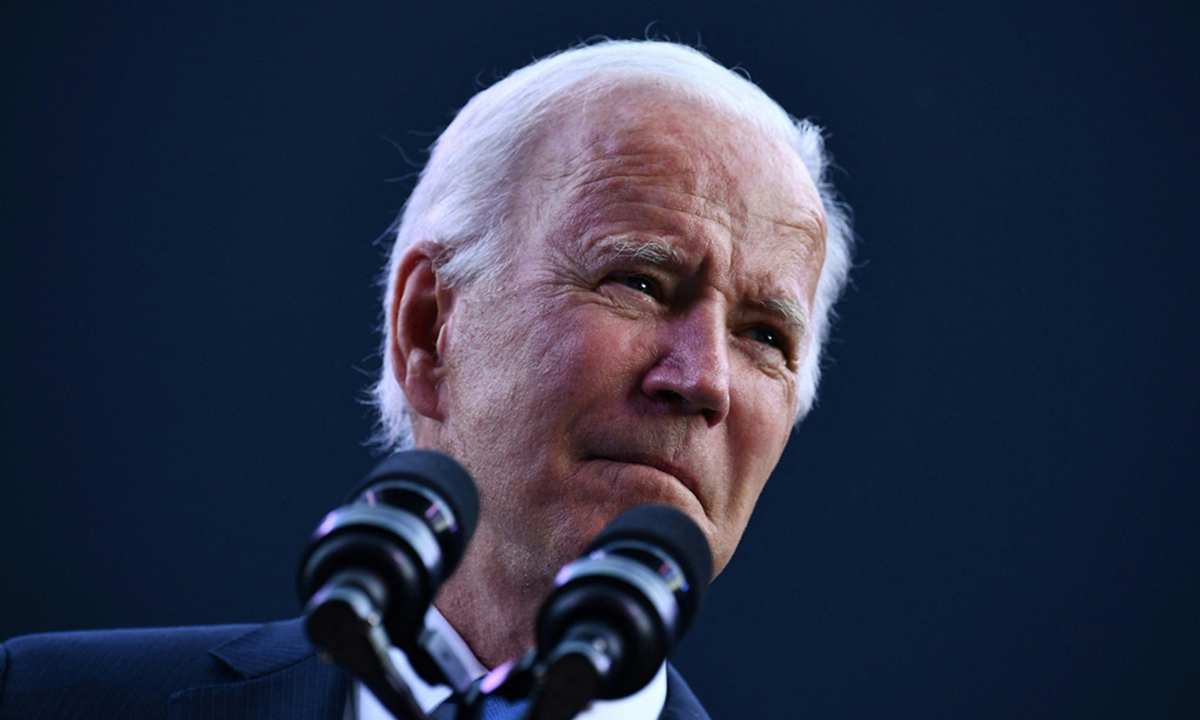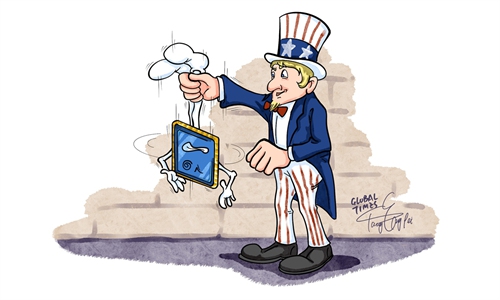Biden to extend ban on Chinese firms, maintaining major hurdle in bilateral ties
US ban on Chinese firms also threatens global supply chains: analysts

Joe Biden Photo: AFP
US President Joe Biden will reportedly keep in place a ban imposed by his predecessor on Chinese companies that the US deems to have ties with the Chinese military, maintaining a major hurdle in bilateral ties even as Washington appears to seek dialogue and even cooperation with China on trade.
Moreover, Chinese analysts stressed that the US' unreasonable suppression of Chinese enterprises would not only hurt the benefits and interests of US investors and enterprises but also undermine the stability of global industry and supply chains.
Biden said he would extend the restrictions laid out in his predecessor's executive order of November 2020, Reuters reported on Tuesday.
China's defense industry never relied on US investments or technologies because China had already realized that the defense industry must realize self-reliance in the early 1990s; therefore, the US ban at the moment won't have a significant impact on China's defense industry, but it actually targets China's civilian-use technologies, experts noted.
Song Zhongping, a Chinese military expert and TV commentator, said that "China's national defense policy is defensive, not offensive. The reason why the US feels a threat is that the US wants to interrupt China's development and rejuvenation, interfere in China's internal affairs, threaten China's national security, and challenge China's sovereignty."
"The 'absolute security' of the US is that Washington can use force to bully and attack anyone around the globe, and no one should be able to hit back, and as long as you can hit back and make it hurt, then you are threatening the US' security. This is the hegemonic logic of security in the mind of Washington's elites," Lü Xiang, a research fellow at the Chinese Academy of Social Sciences in Beijing, told the Global Times on Wednesday.
Lü also pointed out that the Biden administration's recent actions are mostly contradictory. "On the one hand, Biden wants dialogue, and other senior officials want to fix trade ties. On the other, the US keeps provoking on the Taiwan question, and continuing hostile sanctions against Chinese firms," he said.
The US executive order was originally designed to deter US investment firms, pension funds and others from buying shares of Chinese companies that were designated by the US Department of Defense "as backed by the Chinese military," Reuters reported.
Song said that although China has cooperation with other countries in the defense industry, China's fast development in such fields as stealth fighter jets, aircraft and missiles, never relied on any foreign country.
"It's self-reliance from the very beginning, because we won't put our security in the hands of others, especially the US," he said,
Chinese stocks related to the defense industry have made robust gains in recent weeks, lifted by solid earnings in the first three quarter of 2021, when the sector saw a 15.52 percent year-on-year growth in revenue and 36.14 percent in net profits, the Shanghai Securities News reported on Wednesday.
Song added that the US is actually trying to suppress China's civilian-use technologies such as quantum computing, artificial intelligence, semiconductors, biotechnology and so on.
However, the US ban is also closing the window for the US investors to benefit from investing in Chinese companies that have great potential, analysts said.
Gao Lingyun, an expert at the Chinese Academy of Social Sciences in Beijing, told the Global Times on Wednesday that US enterprises get relatively high returns by investing in Chinese firms and the ban has prohibited US investors from making decisions freely.
Dong Shaopeng, a senior research fellow at the Chongyang Institute for Financial Studies at Renmin University of China, added that the US' suppression of Chinese companies is not conducive to the stability of global industry and supply chains.
If the bilateral relationship worsens as a result of the unilateral suppression from the US, the Chinese side might have to implement countermeasures, said Dong, noting that the US economy may be heavily affected if it loses a big market with strong potential, and US capital would not be able to flow freely to the international market.


